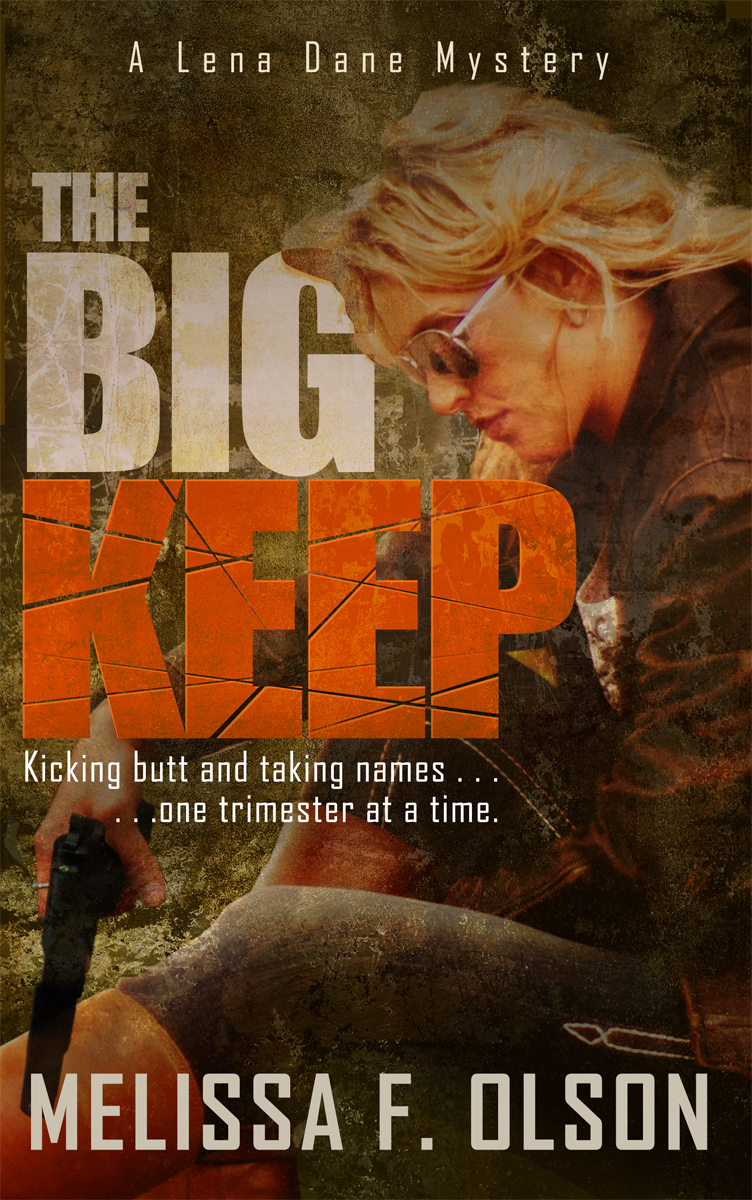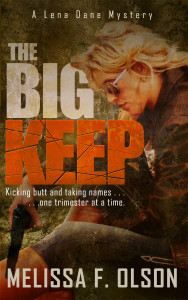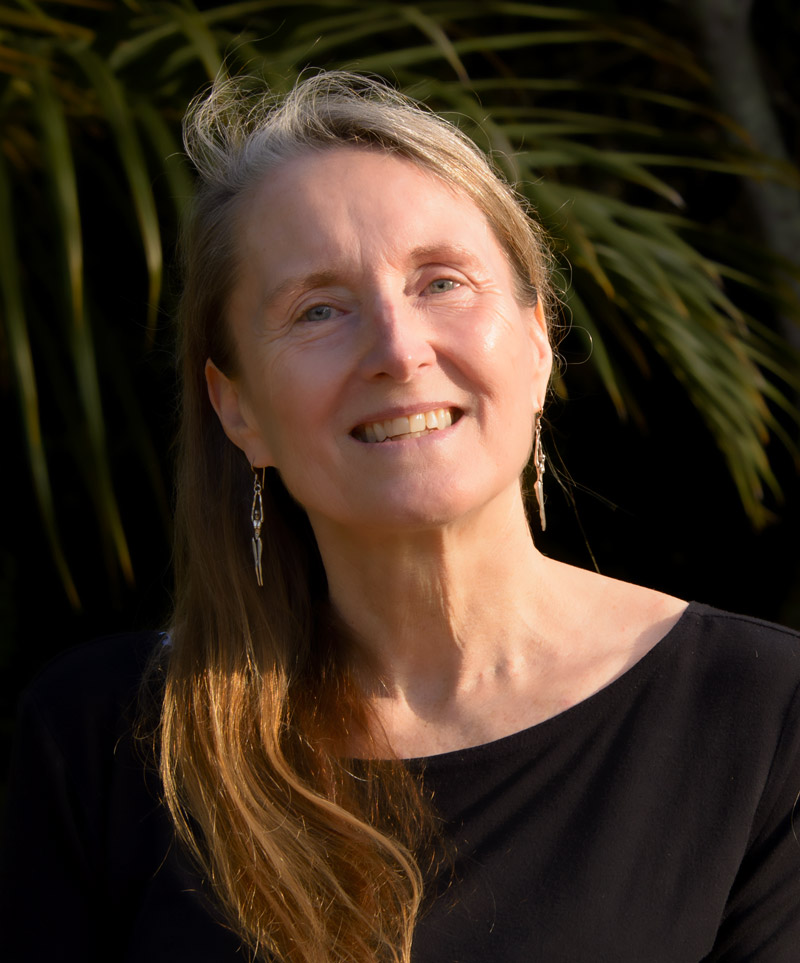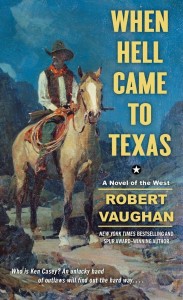My friend author Vicki Hendricks is perhaps best known for her classic, contemporary noir novel Miami Purity, an explosive mix of crime and explicit sex. She followed that break-out novel with several more critically-acclaimed edgy, sex-soaked noir tales, including Sky Blues, Cruel Poetry, Iquana Love, and Involuntary Madness. But now she’s trying something very different with her new novel, Fur People, and I invited her here to talk about it.
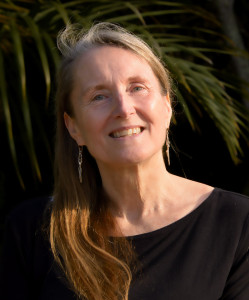 When I switched from crime-noir writing to general fiction, I didn’t realize the difficulty I would have in dropping my usual methods of keeping readers’ attention—sex and violence. I was inspired with a story about Sunny, a young animal-lover, because I share her needs and pain, if not her behaviors. I love animals much more than I love murder, and the irony involved of love taken to the extreme fascinated me. Somehow I failed to recognize obsession, the basis of noir—old habits do die hard. Around every tree in the Florida setting lurked a noir opportunity begging to be explored—my subconscious at work. I hadn’t set out to write a Marley and Me, but it’s as if I was writing blindfolded.
When I switched from crime-noir writing to general fiction, I didn’t realize the difficulty I would have in dropping my usual methods of keeping readers’ attention—sex and violence. I was inspired with a story about Sunny, a young animal-lover, because I share her needs and pain, if not her behaviors. I love animals much more than I love murder, and the irony involved of love taken to the extreme fascinated me. Somehow I failed to recognize obsession, the basis of noir—old habits do die hard. Around every tree in the Florida setting lurked a noir opportunity begging to be explored—my subconscious at work. I hadn’t set out to write a Marley and Me, but it’s as if I was writing blindfolded.
Sexual desires spring from Sunny’s past, as she dreams of the ex-boyfriend she left ten years earlier and hopes to love again. Drunken men with sick talk stumble through the woods and find her camper-bus. What’s a girl to do? In addition, the local veterinarian can’t stop obsessing about the young hunk who so smoothly led her into trafficking Special K and cost her six months in prison and the loss of her license. And the homeless man, Buck, has nothing on his brain but the inside of Sunny’s shorts, ever since he spots her guzzling Half and Half in the grocery.
As I’m writing this, I remember that just a few days ago, worried about my usual quantity and length of sex scenes, my sister asked if the book would be appropriate to give her mother-in-law for Christmas. I assured her it would be fine– just a smattering of romance in there, I told her. Now I wonder if that’s true. Somehow I think so, considering the amount of adult situations in comparison to everything else that happens in the 300 pages, but as I tease out details for examples here, I wonder if my sensibilities have become warped over the years. Am I too perverse to be the judge?
There’s crime, too, I realize, and even firearms, in Fur People. Buck’s unregistered Police Special appears as a complete shock to my conscious self, but there it is, sure as heck, buried under blankets and towels in a Rubbermaid bin. Chekhov’s advice couldn’t be ignored: “If in the first act you have hung a pistol on the wall, then in the following one it should be fired.” I had to deal with that concept.
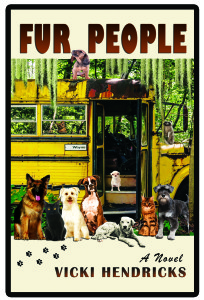 I now recognize that noir crept into the story immediately through the main character, no matter how I tried to lighten and disguise it. The struggle of a young woman who lives in a school bus with a load dogs and cats is intrinsically dark and obsessive, no matter how many baubles, or in this case Coors Light cans, you hang on her Christmas tree. The tree metaphor comes from another favorite instructor, to emphasize the importance of the main plot, as driven by the need of the character. The plot is the tree itself and the rest is merely decoration. I knew this, but on some level I didn’t care.
I now recognize that noir crept into the story immediately through the main character, no matter how I tried to lighten and disguise it. The struggle of a young woman who lives in a school bus with a load dogs and cats is intrinsically dark and obsessive, no matter how many baubles, or in this case Coors Light cans, you hang on her Christmas tree. The tree metaphor comes from another favorite instructor, to emphasize the importance of the main plot, as driven by the need of the character. The plot is the tree itself and the rest is merely decoration. I knew this, but on some level I didn’t care.
Other misgivings arise. Buck battles deadly rays from the sky. Sunny develops telepathy with animals. Sunny’s drunken father recreates the hell she escaped. And more. I built in seven points of view and subplots attached to each, including a German shepherd and Chihuahua conflict, to make up for the seeming lack of sex and murder. Now these multiple strands haunt me. Are they patterned in a jeweled web or tangled like seaweed? Am I in soap opera territory or the vicinity of Charles Dickens/Jane Austen? One hopes for the best.
During the writing, I asked my favorite professor from twenty years ago if there were “rules” for subplots, and she said that each subplot has to affect the main plot and the main plot has to affect the subplots. How logical. Or was it the other way around? Does it matter? I think it does, but I can’t remember how I did it anyway, and trying to analyze the finished structure gives me a headache.
I promised myself that his time I was going to write about a sane person in a crazy world, the opposite of noir, and for a long time, I thought that’s what I’d done. I feel exactly as Sunny does about animals, and most people will tell you I’m normal. But I see now that Sunny’s dedication is mountainous compared to mine. Her guts outweigh mine by a ton. As the writer, I lost control, or gave it up. Maybe that’s as it should be. I can only hope.
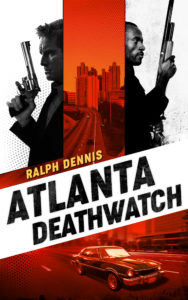 I’m excited to announce that I’ve acquired the rights to all of Ralph Dennis’s work — his published and unpublished novels. Brash Books will be re-releasing his 12 Hardman novels, starting with the first four in December, and the rest through 2019. The Hardman books include a terrific introduction by Joe R. Lansdale. The first two titles in the series, Atlantla Deathwatch and The Charleston Knife is Back in Town are already available for preorder in paperback and ebook on Amazon, iBook, Barnes & Noble and Kobo.
I’m excited to announce that I’ve acquired the rights to all of Ralph Dennis’s work — his published and unpublished novels. Brash Books will be re-releasing his 12 Hardman novels, starting with the first four in December, and the rest through 2019. The Hardman books include a terrific introduction by Joe R. Lansdale. The first two titles in the series, Atlantla Deathwatch and The Charleston Knife is Back in Town are already available for preorder in paperback and ebook on Amazon, iBook, Barnes & Noble and Kobo.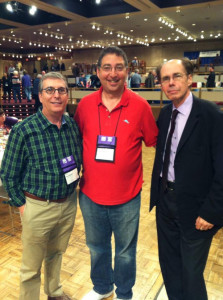

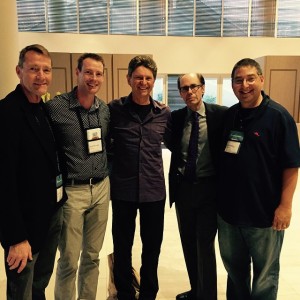

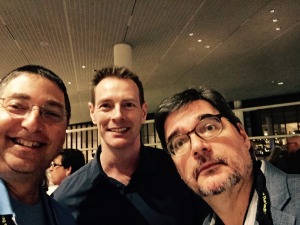
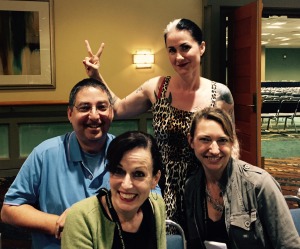
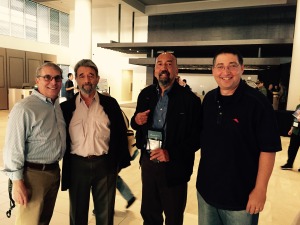

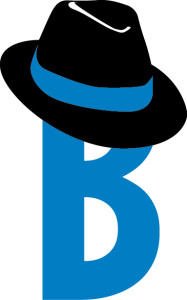 Brash Books
Brash Books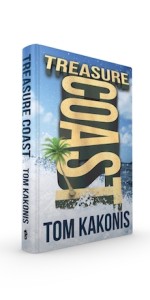 JKP: Do you worry that with such a huge single-month rollout, some of the individual works you’re publishing might get lost?
JKP: Do you worry that with such a huge single-month rollout, some of the individual works you’re publishing might get lost?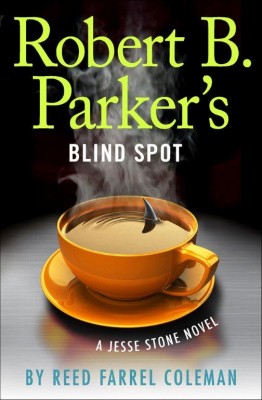
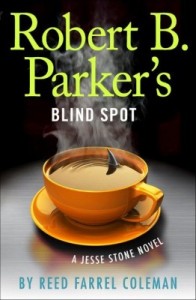 Robert B. Parker died in 2010, but his characters Spenser, Jesse Stone and Virgil Cole have lived on in new books by other authors.
Robert B. Parker died in 2010, but his characters Spenser, Jesse Stone and Virgil Cole have lived on in new books by other authors. 